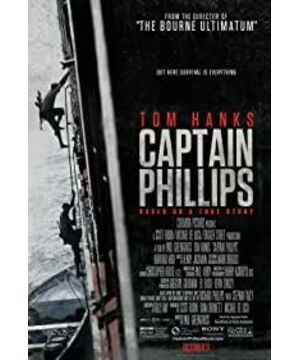The story of Captain Philip is actually very simple. The first half is the struggle between pirates and Captain Philip to popularize the crew, and the second half is the struggle between pirates and Philip and the U.S. Navy. The only thing that runs through is how to protect the United States as much as possible. Citizens are not killed. This is also the reason why the US military has been working hard not to bring the lifeboats to shore, because once the pirates stepped onto the interior of Somalia, the chance of rescue became extremely small, and the effort had to be much greater, not to mention that the US military had suffered severely in Somalia. The failure of military operations on land has become almost impossible.
Such a story, in fact, it is still difficult for the Chinese to understand, not because the story is difficult to understand, but because of the difference in values. For example, when four pirates board the ship, why don't so many crew members choose to fight to the end? Why did the crew choose to hide? Why did Philip dare to take risks? etc. In fact, there is still a story-core issue behind the scenes. Americans respect life to an awe-inspiring level. It is not like the celestial dynasty where dozens of deaths are not taken seriously. With the extreme emphasis on life, the safe way is to choose not to head-on with the pirates, lest the pirates go crazy and kill them in order to win time for rescue.
From the progress of the whole story, we can see that the Americans have a wealth of experience in dealing with the hijacking of Somali pirates, whether from ordinary crews or the military. Such overseas rescue experience is really worth learning from a country. Without a lot of actual combat and long-term overseas military activities, it is almost impossible to implement the most appropriate strategy in the shortest time. In fact, it is not uncommon for Chinese ships to be hijacked by Somalia, but the rescue is lacking, which shows the weakness of inexperience and the sadness of China's maritime power.
In ancient China, "Though it is far away must be punishable", in fact it is more about territorial infringement, or the face challenge of the king's power, and is far from the concern of ordinary individuals. Nowadays, the American style is almost always caused by individuals. They are protecting the safety of Americans, which in turn wins Americans’ recognition and sense of belonging. These are the results of actual actions, not just playing tricks all day long. If you want citizens of a country to have a sense of identity with the country, then the country must protect its citizens from being violated, both internally and externally.
The story is a good story, but without the director’s check, this story may have been filmed into a running account. For the sake of visibility, the director has put a lot of effort in shaping the story, creating a sense of tension. The explosive performance of Hanks in the second half of the story adds a lot of points, but if you say how touching it is, it is not enough, but it is sad, because how much I hope that the protagonist of such a story will be replaced by the protagonist. China.
View more about Captain Phillips reviews











